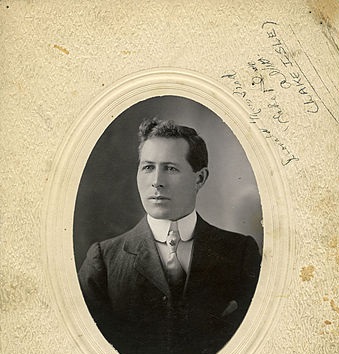Donald Bannerman Macleod (1887-1972) was a Pioneering Figure in New Zealand Molecular physics who made significant contributions to the field. His dedication to research and long tenure as a lecturer at Canterbury University College (now the University of Canterbury) left a lasting impact on scientific understanding in New Zealand.
Early Life and Education
Born in Doyleston, near Christchurch, in 1887, Macleod’s early life fostered a curiosity for the natural world. He pursued his academic interests at Canterbury University College, where he flourished. His talent shone through when he graduated with a Master of Arts with first-class honors in chemistry in 1910. This achievement marked the beginning of a remarkable scientific career.
A Career Dedicated to Molecular Physics
Following his graduation, Macleod’s passion for science led him back to Canterbury University College, this time as a lecturer in physics. He remained devoted to the institution for over four decades, retiring in 1953 as an associate professor. During his tenure, he played a pivotal role in shaping the minds of future generations of physicists.
Macleod’s research focused on the fundamental properties of matter at the molecular level. This field, known as molecular physics, seeks to understand the behavior of molecules and their interactions. His specific area of interest was the viscosity of liquids, mainly sulfur. Viscosity refers to a liquid’s resistance to flow, and Macleod’s research aimed to shed light on the underlying forces that govern this property.
Another key aspect of Macleod’s research involved the internal pressure of liquids. This concept explores the forces that hold the molecules of a liquid together. By investigating these pressures, Macleod could gain insights into the structure and behavior of liquids at a microscopic level.
A Lifelong Collaboration and Recognition
Macleod’s scientific endeavors were undertaken in collaboration. He benefitted greatly from a long-standing research collaboration with Professor Coleridge Farr from 1911 to 1936. This fruitful partnership undoubtedly facilitated groundbreaking discoveries and advancements in their chosen field.
Macleod’s dedication and research excellence garnered him well-deserved recognition within the New Zealand scientific community. In 1935, he was elected a Fellow of the Royal Society of New Zealand, a prestigious honor bestowed upon distinguished scientists. This fellowship acknowledged his significant contributions to the country’s advancement of scientific knowledge.
The Hector Medal: A Testament to Achievement
Macleod’s most notable recognition came in 1940 when he was awarded the Royal Society of New Zealand’s Hector Medal. This prestigious award, named after explorer Sir James Hector, is the highest honor bestowed by the Society. It serves as a testament to Macleod’s exceptional research and his standing as a leading figure in New Zealand’s scientific landscape.
A Legacy of Discovery and Inspiration
Donald Bannerman Macleod’s life and work serve as an inspiration for aspiring scientists. His unwavering dedication to research, his long and distinguished career as an educator, and his groundbreaking contributions to the field of molecular physics have left a lasting legacy. Through his research on viscosity, internal pressure, and the properties of liquids at the molecular level, Macleod played a vital role in deepening our understanding of the physical world.
